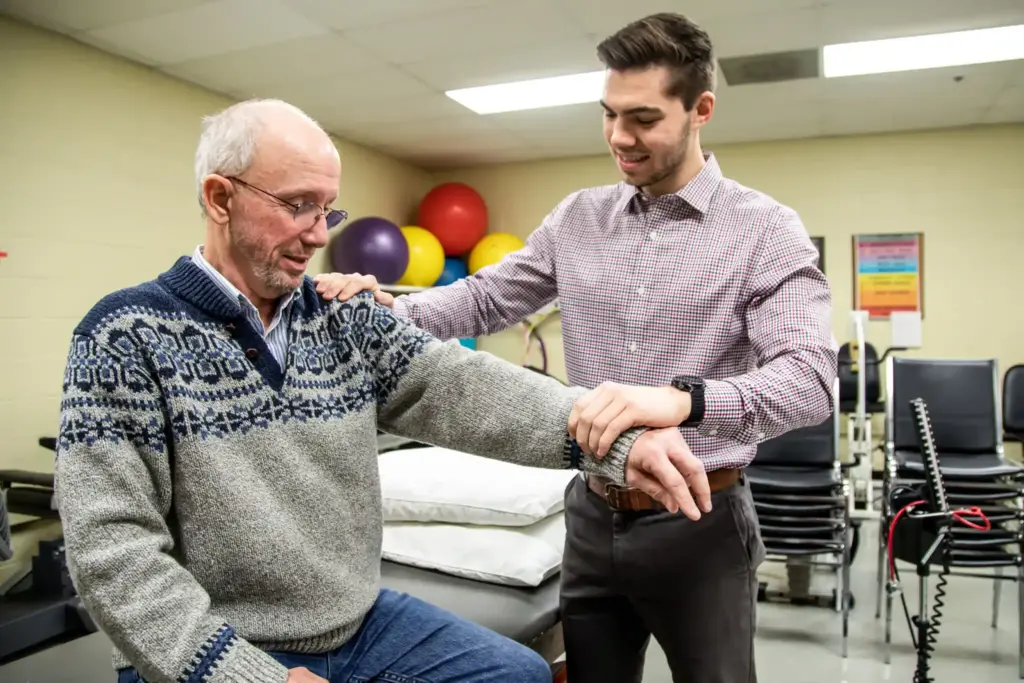Overview
- Degree Level
- Undergraduate
- Degrees Offered
- Bachelor of Arts, Bachelor of Science
- school/college
- College of Arts and Sciences

The Pre-Occupational Therapy program at Arcadia University offers four competitive seats in the two-year full-time Master of Science in Occupational Therapy (MSOT) program at Salus University to students who meet the criteria, according to an agreement between the two universities. Additional Arcadia applicants will be considered, along with all other non-Arcadia applicants, for admission to the MSOT program.
As a Pre-Occupational Therapy student at Arcadia University, you can earn a bachelor’s degree in any major that allows you to complete the courses required for admission to the MSOT program at Salus. It is very important for students in this program to work with pre-OT Program Advisers to ensure timely completion of each required course.
Graduates of the MSOT program will be eligible to sit for the national certification examination for the occupational therapist administered by the National Board for Certification in Occupational Therapy (NBCOT). After successful completion of this exam, the individual will be an Occupational Therapist, Registered (OTR).
The MSOT program is fully accredited by the Accreditation Council for Occupational Therapy Education (ACOTE) of the American Occupational Therapy Association (AOTA).
Salus University is located in Elkins Park, Pennsylvania, approximately two miles from Arcadia’s Glenside campus. Its founding college, the Pennsylvania College of Optometry, was established in 1919. The university is accredited by the Commission on Higher Education of the Middle States Association of Colleges and Schools (MSA).
Required Course
Study the functioning systems of the human organism with emphasis on mechanisms governing the function of each tissue type as part of the whole organ, and it examines various systems in the laboratory using a variety of experimental techniques.
Required Course
Develop basic knowledge of the categories, symptoms, and treatments of selected disorders found in the Diagnostic and Statistical Manual of Mental Disorders.
Required Course
Learn basic statistical techniques and their applications to the sciences, social sciences and business administration.

This website uses cookies so that we can provide you with the best user experience possible. Cookie information is stored in your browser and performs functions such as recognizing you when you return to our website and helping our team to understand which sections of the website you find most interesting and useful.
Strictly Necessary Cookie should be enabled at all times so that we can save your preferences for cookie settings.
If you disable this cookie, we will not be able to save your preferences. This means that every time you visit this website you will need to enable or disable cookies again.